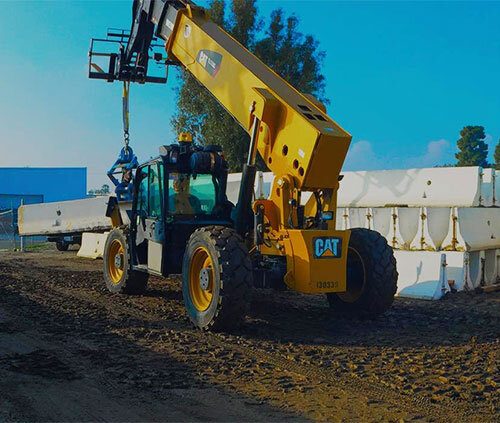Equipment Rental Company: Your Resource for All Kinds Of Machinery
Maximize Your Budget by Comprehending the Costs Connected With Building Tools Leasings
Understanding the complete extent of expenses connected with building and construction tools services is important for maximizing your budget plan. While the initial rental cost may seem straightforward, countless additional expenditures-- such as transport, fuel surcharges, and maintenance-- can rapidly build up, influencing your economic preparation. Being aware of numerous charges and the ins and outs of rental arrangements can help stay clear of unexpected monetary burdens. What techniques can be employed to successfully manage these expenses and make certain a much more effective rental experience?
Introduction of Rental Costs
When taking into consideration building equipment services, understanding the linked expenses is paramount for reliable budgeting and project preparation. Rental expenses can vary significantly based on numerous aspects, consisting of tools type, period of leasing, and area. The preliminary rental cost frequently reflects the devices's market need and its associated functional capacities, affecting the overall cost.
Along with the base rental rate, secondary costs may emerge, such as transport charges, fuel surcharges, and maintenance charges. It is vital to make up these additional costs to properly evaluate the complete price of renting devices. In addition, the rental period can influence pricing; longer rentals may certify for discounted prices, while short-term leasings may sustain greater daily costs.

Breakdown of Rental Rates
A thorough understanding of rental rates is important for professionals and project managers aiming to maximize their spending plans. Rental prices for building and construction tools commonly contain a number of elements, consisting of base rates, time-based charges, and usage costs.
Base prices are the core charges connected with the service of the tools, commonly established by the kind and size of the machinery. These prices can differ substantially, influenced by factors such as devices need, accessibility, and regional market fads. Time-based fees, which may be daily, weekly, or monthly, serve to suit various project timelines and rental periods.
Furthermore, rental rates might include use costs, which are suitable when devices is made use of past a specified limit, making certain that the rental business can account for damage. Seasonal demand fluctuations can likewise impact rental prices, with peak building seasons typically regulating greater costs.
Moreover, recognizing the rental business's plans relating to upkeep and insurance policy can offer more insight into the total expense framework. By examining these components, specialists can make informed choices, ensuring the choice of rental tools lines up with both task requirements and spending plan constraints.
Extra Costs to Consider
Understanding the complexities of extra costs is vital for professionals to manage their general leasing expenditures properly. Past the standard rental rates, different auxiliary costs can significantly impact the total cost of equipment leasing. These fees typically consist of shipment and pickup fees, which can vary based on distance and logistics involved in carrying the equipment to and from the job site.
Moreover, some rental companies might enforce gas surcharges if the devices is returned with less fuel than when rented. It is also vital to know potential cleansing costs, especially for specific devices that requires thorough upkeep after usage.

Extensively examining the rental contract and clarifying these added fees ahead of time can assist professionals avoid unanticipated expenses and ensure that budget plans remain undamaged throughout the project lifecycle.
Repair And Maintenance Expenditures
Routine repair and maintenance expenditures are often ignored aspects that can dramatically influence the general price of building equipment services. When renting tools, it is important to consider not only the rental fees but also the prospective costs connected with maintaining the equipment in optimal operating problem.
Numerous rental firms consist of fundamental upkeep as component of the rental arrangement; however, much more unexpected break downs or considerable repairs can result in extra expenditures. It's vital to assess the rental contract thoroughly to comprehend what upkeep solutions are covered and what responsibilities fall on the tenant.
In addition, equipment that is not well-kept can cause inadequacies at work website, possibly creating hold-ups and increasing task prices. To minimize these risks, it is advisable to carry out routine assessments and keep open interaction with the rental provider relating to any kind of concerns that develop throughout usage.
Insurance Policy and Responsibility Prices
Insurance policy and obligation prices are critical components that can significantly impact the total expenditure of building and construction devices services (aerial lift rental). These prices make sure that both the rental business and the client are protected from possible financial losses arising from accidents, damage, or burglary during the rental period

Furthermore, customers must understand any type of deductibles or exclusions in the insurance plan, as these can impact possible out-of-pocket costs. Understanding the terms of any insurance protection is vital to prevent unexpected expenses. Ultimately, budgeting for insurance coverage and responsibility costs can aid ensure a smoother rental experience and secure against monetary threats connected with building and construction projects.
Conclusion
In verdict, a detailed understanding of the costs linked with construction devices rentals is important look at this site for effective spending plan management. Ultimately, educated decision-making regarding tools services contributes to the total success of construction endeavors.
Rental prices can vary significantly based on numerous aspects, including equipment kind, period of service, and place (boom lift rental). The rental duration can affect rates; longer services may certify for discounted prices, while short-term services might sustain greater daily charges
By conducting thorough study and engaging with reliable rental companies, contractors can properly browse the complexities of rental prices, ultimately optimizing their financial sources.
Beyond the standard rental rates, numerous extra charges can substantially impact the overall cost of devices service. Rental business usually offer responsibility insurance that covers injuries to 3rd parties or damage to residential or commercial property, while tools damages insurance can cover the expense of repairs or substitute if the rented equipment is harmed.